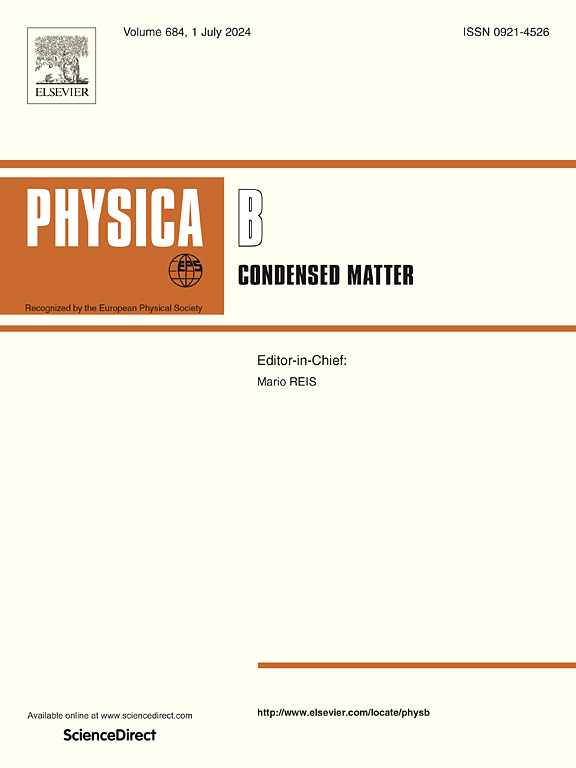第5族过渡金属间隙的内摩擦:测量解释的平均场模型
IF 2.8
3区 物理与天体物理
Q2 PHYSICS, CONDENSED MATTER
引用次数: 0
摘要
我们建立了一个平均场弹性模型,能够再现由于5族过渡金属中的C, N, O间隙引起的内摩擦峰。除跳频外,模型参数均由密度泛函理论计算得到。对于任何从机械光谱研究第5组过渡金属的实验人员,我们的平均场模型构成了一个现成的工具,能够从Snoek峰温度位置识别间隙溶质,并从Snoek峰高度量化它们的浓度。本文章由计算机程序翻译,如有差异,请以英文原文为准。
Internal friction of interstitials in group 5 transition metals: A mean-field model for measurements interpretation
We have built a mean-field elastic model able to reproduce internal friction peaks due to C, N, O interstitials in group 5 transition metals. Parameters of this model have all been computed from Density Functional Theory, except for jump frequencies that have been fitted on experimental data. For any experimentalist studying group 5 transition metals from mechanical spectroscopy, our mean-field model constitutes a ready-to-use tool, able to identify interstitial solutes from Snoek peaks temperature positions, and quantify their concentrations from Snoek peaks heights.
求助全文
通过发布文献求助,成功后即可免费获取论文全文。
去求助
来源期刊

Physica B-condensed Matter
物理-物理:凝聚态物理
CiteScore
4.90
自引率
7.10%
发文量
703
审稿时长
44 days
期刊介绍:
Physica B: Condensed Matter comprises all condensed matter and material physics that involve theoretical, computational and experimental work.
Papers should contain further developments and a proper discussion on the physics of experimental or theoretical results in one of the following areas:
-Magnetism
-Materials physics
-Nanostructures and nanomaterials
-Optics and optical materials
-Quantum materials
-Semiconductors
-Strongly correlated systems
-Superconductivity
-Surfaces and interfaces
 求助内容:
求助内容: 应助结果提醒方式:
应助结果提醒方式:


